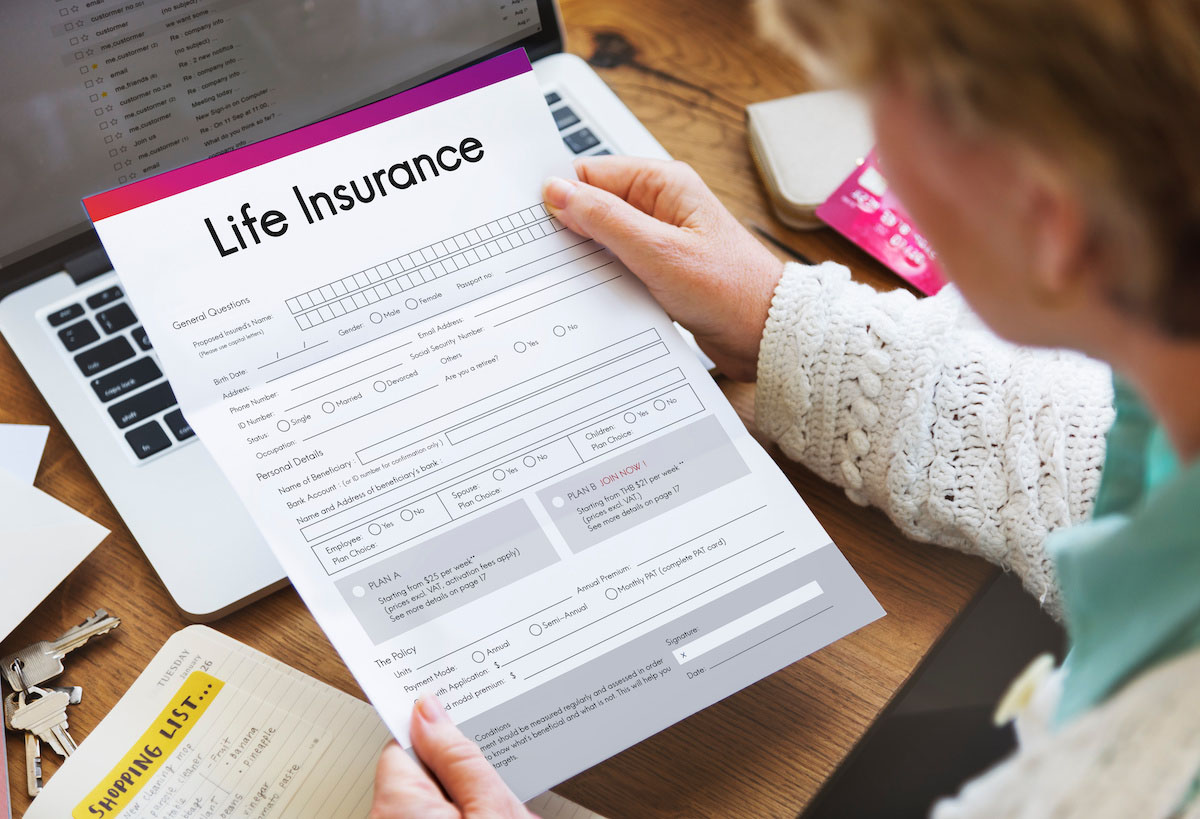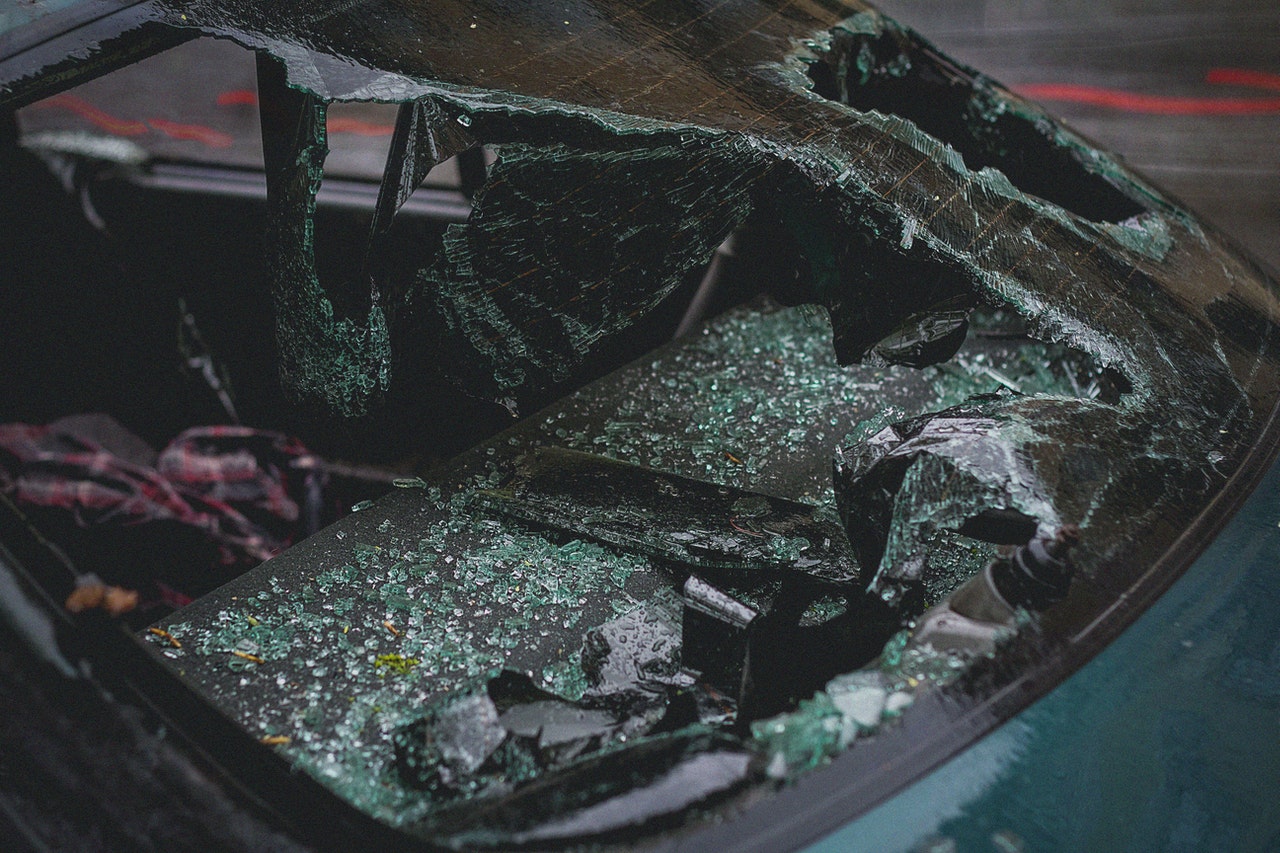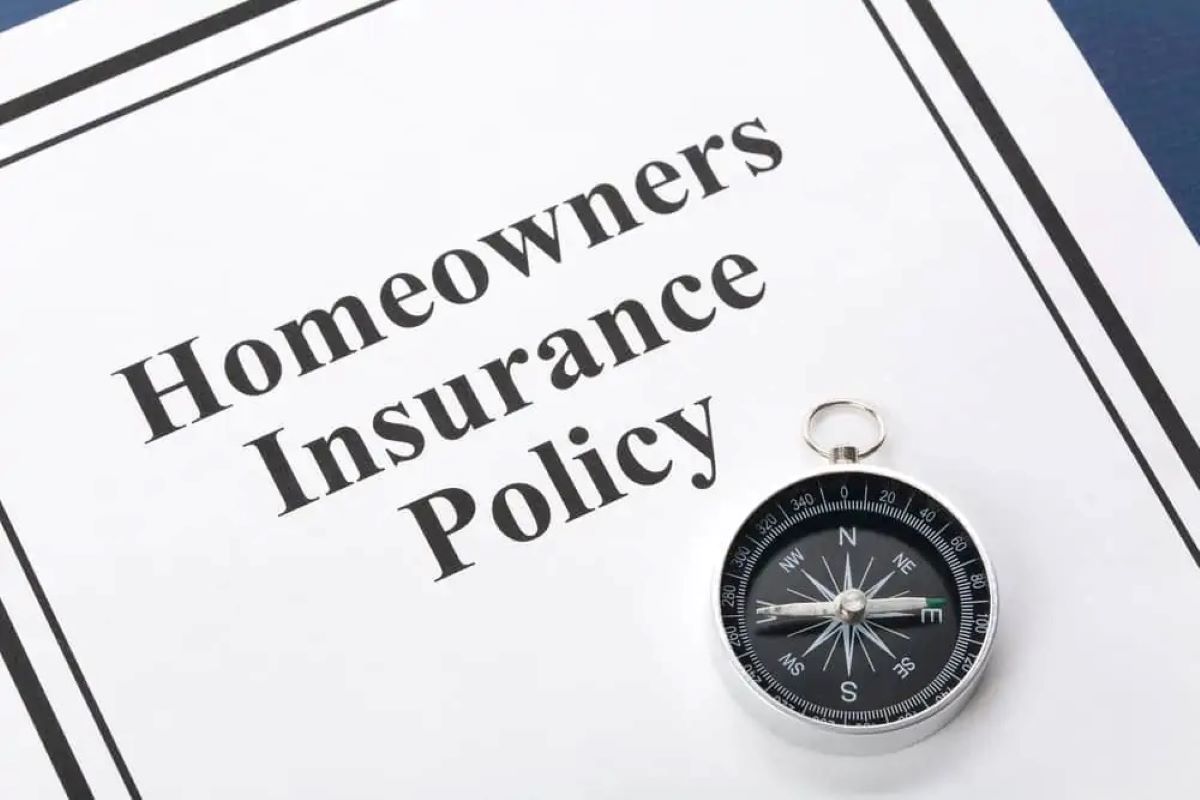Home>Finance>What Happens If Your House Burns Down And You Have No Insurance?


Finance
What Happens If Your House Burns Down And You Have No Insurance?
Published: November 14, 2023
Discover the financial consequences of not having insurance when your house burns down. Protect your finances and learn the importance of proper insurance coverage.
(Many of the links in this article redirect to a specific reviewed product. Your purchase of these products through affiliate links helps to generate commission for LiveWell, at no extra cost. Learn more)
Table of Contents
Introduction
Welcome to the world of uncertainty, where unfortunate events such as house fires can happen when least expected. It’s a scenario that no homeowner wants to contemplate, but understanding the consequences of such an incident is crucial for making informed decisions about protecting your most valuable asset.
While it may be tempting to overlook the importance of home insurance, the reality is that having coverage can make a world of difference in times of crisis. Home insurance provides a safety net, offering financial protection and peace of mind in the event of a disaster.
However, what happens if your house burns down and you have no insurance? The consequences can be devastating, as you’re left to bear the full weight of the financial burden and the task of rebuilding your life from scratch.
In this article, we will explore the potential hardships of not having home insurance and provide insights into the steps you can take to navigate through the aftermath of a house fire.
While we sincerely hope that you never find yourself in this predicament, being prepared and informed is essential for safeguarding your home and your future. So, let’s dive in and examine the potential consequences of not having home insurance.
The Importance of Home Insurance
Home insurance is not just an optional expense; it is a vital safeguard for homeowners. It provides financial protection against a wide range of risks, including fire, theft, natural disasters, and liability. Here are some key reasons why having home insurance is of paramount importance:
- Protection for your investment: For most people, their home is their largest asset. Home insurance ensures that this significant investment is protected against unexpected events that could result in substantial financial loss.
- Peace of mind: Knowing that you have insurance coverage for your home helps to alleviate stress and anxiety. Instead of worrying about the uncertainty of the future, you can rest assured that you have a safety net in place.
- Rebuilding and repair costs: In the unfortunate event of a house fire, the cost of rebuilding and repairing the damages can be staggering. Home insurance covers these expenses, giving you the means to recover and restore your home.
- Personal belongings: Home insurance not only covers the structure of your house but also your personal belongings. In the event of a fire, theft, or other covered incidents, your insurance policy can provide financial assistance to replace or repair your possessions.
- Liability coverage: Accidents can happen at any time, and if someone is injured on your property, you could be held liable for their medical expenses and other damages. Home insurance typically includes liability coverage, protecting you from potential legal and financial repercussions.
While it may be tempting to forgo home insurance to save money in the short term, the potential risks and costs associated with not having coverage far outweigh any temporary financial benefits. Investing in a comprehensive home insurance policy is a smart decision that protects not only your home but also your financial stability and peace of mind.
Now that we’ve established the importance of home insurance, let’s explore the potential consequences of not having this essential protection.
Consequences of not Having Home Insurance
Choosing to forgo home insurance can lead to dire consequences in the event of a house fire or other catastrophic events. Here are some potential hardships you may face if you don’t have home insurance:
- Financial devastation: Perhaps the most significant consequence of not having home insurance is the financial burden it places on you. Without insurance coverage, you will be responsible for the full cost of rebuilding your home, replacing your belongings, and repairing any damages. This can quickly deplete your savings, leave you in debt, or even force you to sell your remaining assets.
- Loss of personal possessions: A house fire doesn’t just destroy the structure of your home; it also consumes your personal belongings. Without insurance, the burden of replacing essential items such as furniture, electronics, and sentimental keepsakes falls solely on you. The sentimental value of these possessions cannot be measured in financial terms, adding to the emotional toll of the situation.
- Displacement and temporary housing: A major fire can render your home uninhabitable, forcing you to find alternative accommodation during the reconstruction process. Without insurance, you will need to bear the costs of temporary housing, such as hotel stays or rental properties, which can be extremely costly and disrupt your daily life.
- Limited resources for rebuilding: Rebuilding a home from scratch is an arduous and expensive process. Without insurance funds to rely on, you may have to make compromises in terms of the quality of construction materials, design choices, or the overall scope of the project. This can significantly impact the value and functionality of your new home.
- Inability to recover quickly: Recovering from a house fire without insurance is an uphill battle. The lack of financial resources can prolong the recovery process, making it challenging to move forward and rebuild your life. It can also lead to added stress, anxiety, and frustration, as you struggle to regain stability.
It’s important to recognize that the consequences of not having home insurance extend beyond the immediate aftermath of a house fire. The financial and emotional ramifications can linger for years, disrupting your financial stability and quality of life.
Now that we understand the potential hardships of not having home insurance, let’s explore the options available to you for dealing with loss and rebuilding after a house fire.
Dealing with Loss and Rebuilding Options
Coping with the aftermath of a house fire is undoubtedly challenging, especially when you don’t have insurance. However, there are steps you can take to navigate through this difficult situation and work towards rebuilding your life:
- Contact emergency services: The first priority after a house fire is ensuring the safety of yourself and your loved ones. Call emergency services immediately to report the fire and receive any necessary medical attention.
- Document the damage: Document the extent of the damage to your property and belongings. Take photos or videos of the affected areas and make a detailed list of items that have been damaged or destroyed. This documentation will be valuable when filing claims or seeking assistance.
- Explore community resources: Reach out to local community organizations, religious institutions, or charities that may offer support to fire victims. They may be able to provide temporary shelter, clothing, or other essential resources to help you through this difficult time.
- Seek assistance from friends and family: Lean on your support network during these challenging times. Inform friends, family, and neighbors about your situation and see if they can offer temporary housing or support in any way. They can also provide emotional support during this trying period.
- Consider government programs: In some cases, government programs may be available to assist with disaster relief and recovery efforts. Research local, state, or federal programs that provide financial aid or housing support to individuals affected by house fires.
- Explore crowdfunding: In the age of social media, crowdfunding platforms can be a powerful tool for raising funds to rebuild your life after a house fire. Share your story and ask for support from friends, family, and even strangers who may be willing to contribute to your cause.
- Take legal action: If the fire was the result of negligence or wrongdoing on someone else’s part, consult with a lawyer to explore potential legal avenues. In some cases, you may be entitled to compensation that can help with the rebuilding process.
- Consider personal loans: If you can qualify for a personal loan, it can provide a temporary financial bridge to cover immediate expenses while you navigate through the rebuilding process. However, remember to proceed with caution and carefully consider the terms and interest rates of any loan before committing.
While these options may not fully replace the sense of security and financial protection that home insurance provides, they can help mitigate some of the challenges faced when dealing with loss and work towards rebuilding your life.
Next, let’s explore the potential government aid and support that may be available for individuals without home insurance.
Seeking Help and Assistance
When you find yourself in the unfortunate situation of a house fire without insurance, seeking help and assistance becomes crucial. While the road to recovery may be challenging, there are resources and organizations that can provide support during this difficult time:
- Local disaster relief services: Reach out to local disaster relief organizations or government agencies that specialize in assisting individuals affected by fires or other natural disasters. They may be able to provide immediate aid, temporary shelter, and guidance on accessing other resources.
- Nonprofit organizations: Many nonprofit organizations offer assistance to disaster victims, providing essentials such as clothing, food, and temporary housing. Look for organizations in your area that focus on helping people rebuild their lives after a catastrophic event.
- Red Cross assistance: The American Red Cross and similar organizations provide emergency aid to individuals affected by disasters. They offer immediate support, including shelter, food, and health services, to help you get back on your feet.
- Community support: Inform your local community and seek assistance from neighbors, friends, and family members. They may be willing to offer temporary accommodation, help with basic needs, or even contribute financially to your recovery efforts.
- Churches and religious organizations: Religious institutions often play a vital role in providing support during times of crisis. Contact local churches or faith-based organizations to inquire about their assistance programs for individuals who have experienced a house fire.
- Disaster recovery centers: Following a significant disaster, government agencies may set up disaster recovery centers in affected areas. These centers serve as a hub for various assistance programs, including housing support, financial assistance, and counseling services.
- Insurance counseling services: Although you may not have home insurance, it can still be beneficial to seek guidance from insurance counseling services. These organizations can provide advice on your options, connect you with resources, and help you understand the steps involved in rebuilding your life without insurance coverage.
Remember, seeking help and assistance is not a sign of weakness but a necessary step in overcoming the challenges you face. Reach out to these organizations and individuals who are ready to support and guide you during this difficult time.
Next, let’s explore potential government aid and support that may be available to individuals without home insurance.
Government Aid and Support
When facing the devastating aftermath of a house fire without insurance, government aid and support can be a crucial lifeline. While assistance programs and eligibility criteria may vary depending on your location, here are some potential options to explore:
- Federal Emergency Management Agency (FEMA): FEMA provides assistance to individuals and communities affected by disasters, including financial help for housing, repairs, and other disaster-related expenses. Visit the FEMA website or contact their helpline to determine if you qualify for their programs.
- State and local government programs: Many state and local governments have disaster relief programs in place to assist individuals and families affected by fires. These programs may offer financial aid, temporary housing, and other forms of assistance. Reach out to your local government offices or visit their websites to learn about the resources available to you.
- Housing assistance programs: If you are displaced due to the fire, you may be eligible for temporary or transitional housing. Contact your local housing authority or explore programs such as Section 8 Housing Choice Voucher Program or Emergency Solution Grants, which provide rental assistance for those in need.
- Low-income assistance programs: If you have experienced a significant financial setback due to the fire, you may be eligible for various low-income assistance programs. These programs can provide financial aid, food assistance, healthcare benefits, and more. Look into programs like Temporary Assistance for Needy Families (TANF), Supplemental Nutrition Assistance Program (SNAP), and Medicaid.
- Loan and grant programs: Some government agencies offer low-interest loans or grants to help individuals or businesses rebuild after a disaster. These funds can be used to cover costs associated with rebuilding, repairs, and replacing essential items. Research programs such as the Small Business Administration (SBA) Disaster Assistance Loans or the Individual Assistance Program offered by your state.
- Tax relief and deductions: After a fire, you may be eligible for certain tax benefits and deductions. Consult with a tax professional or visit the IRS website to learn about any available tax relief programs, exemptions, or deductions that could help alleviate the financial burden.
It’s important to actively explore all available government resources and programs that can provide financial aid and support in rebuilding your life after a house fire. Each program may have specific requirements and application processes, so be sure to gather all necessary documentation and seek assistance if needed.
While government aid can provide substantial help, it’s important to remember that these programs may not fully compensate for the protection and financial security that home insurance provides. Rebuilding your life without insurance can be a challenging journey, but with the right support and resources, you can regain stability and move forward.
Next, let’s explore alternatives to traditional home insurance that may be worth considering.
Alternatives to Insurance
While having home insurance is the most reliable way to protect your property and belongings, there are a few alternative options worth considering if you find yourself without insurance coverage:
- Savings and Emergency Funds: Building up a substantial savings account or emergency fund can provide a financial cushion in case of unexpected events like a house fire. By setting aside a portion of your income regularly, you can accumulate funds that can be used to cover rebuilding and replacement costs.
- Risk Assessment and Prevention: Take proactive measures to minimize the risk of fire and other potential hazards. Invest in safety measures such as smoke detectors, fire extinguishers, and sprinkler systems. Regularly inspect electrical wiring and appliances, and practice safe habits to reduce the likelihood of a fire occurring in your home.
- Fire Protection Systems: Install fire-resistant materials and build fire breaks within your property to mitigate the impact of a potential fire. Additionally, consider joining a local fire district or community fire response group to boost your fire protection efforts.
- Community Mutual Aid: Explore the possibility of joining a community-based mutual aid group. These groups pool resources and support one another in times of need, including assistance with rebuilding after a fire. Mutual aid systems rely on trust, transparency, and collaboration within the community.
- Rental or Temporary Housing: If you don’t have insurance and your home becomes uninhabitable, consider options such as renting a furnished apartment or staying with family or friends while you rebuild. Temporary housing can provide a safe and stable living environment during the recovery process.
- Building Codes and Regulations: Ensure that your home meets current building codes and regulations. Upgrading electrical systems, installing fire-resistant materials, and maintaining compliance with building codes can reduce the risk of a fire and may even impact insurance rates if you decide to obtain coverage in the future.
- Self-Insurance Groups: Investigate the possibility of joining a self-insurance group or a homeowner’s association that pools resources to provide collective coverage in the event of a disaster. These groups typically involve a group of homeowners who share the financial burden of rebuilding and repairs.
It’s important to note that these alternatives may not provide the same level of comprehensive coverage and financial protection as traditional home insurance. They require proactive planning, community involvement, and personal responsibility. However, they can offer some level of support and help lessen the financial burden in the event of a house fire.
Remember, prevention is key, and it’s always wise to explore all available options for protecting your most valuable asset. While alternatives to insurance may have limitations, they can still provide some level of support and assistance in the face of a disaster.
Now, let’s wrap up our discussion.
Conclusion
While it’s an uncomfortable thought, the reality is that house fires can happen to anyone at any time. Having home insurance is the most reliable way to protect your home, belongings, and financial stability in the event of a fire. However, if you find yourself without insurance and facing the devastating aftermath of a house fire, there are steps you can take to navigate through this challenging situation.
Not having home insurance can lead to dire consequences, including financial devastation, loss of personal possessions, displacement, and limited resources for rebuilding. It can be an emotionally and financially trying experience, but it’s essential to remain proactive and seek assistance from various sources.
Reach out to local resources, government aid programs, nonprofit organizations, and community support networks. Explore alternatives to insurance, such as building emergency funds, practicing risk prevention, or joining community mutual aid groups. While these alternatives may not provide the same level of coverage as insurance, they can offer some level of support during the recovery process.
Remember, the road to recovery may be long and challenging, but with perseverance, resilience, and the help of others, you can rebuild your life after a house fire. Take advantage of the resources available to you and stay focused on your goal of restoring stability and regaining a sense of security.
However, it’s important to learn from this experience and recognize the crucial importance of home insurance. Investing in a comprehensive policy provides peace of mind, financial protection, and a safety net in the face of unforeseen events. Make it a priority to secure proper home insurance coverage as soon as possible to ensure that your home and belongings are protected from potential risks.
Remember, it’s not just a matter of protecting a physical structure; it’s about safeguarding your dreams, memories, and the sense of security that comes with having a place to call home.
Stay informed, stay prepared, and take the necessary steps to protect what matters most to you.














